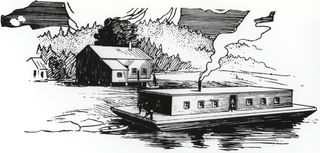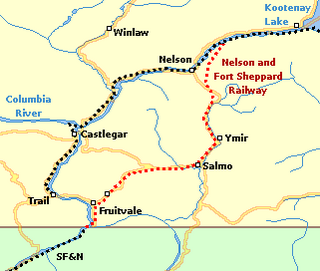Canadian federalism involves the current nature and historical development of the federal system in Canada.

The legal system of Canada is pluralist: its foundations lie in the English common law system, the French civil law system, and Indigenous law systems developed by the various Indigenous Nations.

The Constitution Act, 1867, originally enacted as the British North America Act, 1867, is a major part of the Constitution of Canada. The act created a federal dominion and defines much of the operation of the Government of Canada, including its federal structure, the House of Commons, the Senate, the justice system, and the taxation system. In 1982, with the patriation of the Constitution, the British North America Acts which were originally enacted by the British Parliament, including this Act, were renamed. However, the acts are still known by their original names in records of the United Kingdom. Amendments were also made at this time: section 92A was added, giving provinces greater control over non-renewable natural resources.
Pith and substance is a legal doctrine in Canadian constitutional interpretation used to determine under which head of power a given piece of legislation falls. The doctrine is primarily used when a law is challenged on the basis that one level of government has encroached upon the exclusive jurisdiction of another level of government.
In many Commonwealth jurisdictions, the phrase "peace, order, and good government" (POGG) is an expression used in law to express the legitimate objects of legislative powers conferred by statute. The phrase appears in many Imperial Acts of Parliament and Letters Patent, most notably the constitutions of Barbados, Canada, Australia and formerly New Zealand and South Africa.
Canadian constitutional law is the area of Canadian law relating to the interpretation and application of the Constitution of Canada by the courts. All laws of Canada, both provincial and federal, must conform to the Constitution and any laws inconsistent with the Constitution have no force or effect.
Section 92(13) of the Constitution Act, 1867, also known as the property and civil rights power, grants the provincial legislatures of Canada the authority to legislate on:
13. Property and Civil Rights in the Province.

Russell v The Queen is a Canadian constitutional law decision dealing with the power of the federal Parliament. The case was decided in 1882 by the Judicial Committee of the Privy Council, at that time the highest court in the British Empire, including Canada. The Judicial Committee held that the Canada Temperance Act was valid federal legislation under the peace, order and good government power, set out in section 91 of the Constitution Act, 1867. The case expanded upon the jurisprudence that was previously discussed in Citizen's Insurance Co. v. Parsons.

Hodge v The Queen is a Canadian constitutional law decision of the Judicial Committee of the Privy Council in 1883, at that time the highest court of appeal in the British Empire, including Canada.

Cunningham v Homma, is a decision of the Judicial Committee of the Privy Council that upheld a British Columbia law that prohibited Japanese Canadians and Chinese Canadians from voting in provincial elections.

Royal Bank of Canada v R, is a notable Canadian constitutional decision of the Judicial Committee of the Privy Council where the Council limited the province's ability to create laws in relation to extraprovincial contractual rights.
In Canadian Constitutional law, interjurisdictional immunity is the legal doctrine that determines which legislation arising from one level of jurisdiction may be applicable to matters covered at another level. Interjurisdictional immunity is an exception to the pith and substance doctrine, as it stipulates that there is a core to each federal subject matter that cannot be reached by provincial laws. While a provincial law that imposes a tax on banks may be ruled intra vires, as it is not within the protected core of banking, a provincial law that limits the rights of creditors to enforce their debts would strike at such a core and be ruled inapplicable.

L'Union St. Jacques de Montreal v Bélisle is a Canadian constitutional law decision by the Judicial Committee of the Privy Council in 1874. The issue was whether a provincial statute which altered the contractual liabilities of a benevolent organization, reducing its financial obligations to two widows, was within the constitutional authority of the province of Quebec under the British North America Act, 1867.

Section 91 of the Constitution Act, 1867 is a provision in the Constitution of Canada that sets out the legislative powers of the federal Parliament. The federal powers in section 91 are balanced by the list of provincial legislative powers set out in section 92 of the Constitution Act, 1867. The dynamic tension between these two sets of legislative authority is generally known as the "division of powers". The interplay between the two lists of powers have been the source of much constitutional litigation since the Confederation of Canada in 1867.

Canada (AG) v British Columbia (AG), also known as the Reference as to constitutional validity of certain sections of The Fisheries Act, 1914 and the Fish Canneries Reference, is a significant decision of the Judicial Committee of the Privy Council in determining the boundaries of federal and provincial jurisdiction in Canada. It is also significant, in that it represented a major victory in the fight against discrimination aimed at Japanese Canadians, which was especially prevalent in British Columbia in the early part of the 20th century.

Canada (AG) v Ontario (AG)[1937] UKPC 6, [1937] A.C. 326, also known as the Labour Conventions Reference, is a landmark decision of the Judicial Committee of the Privy Council concerning the distinct nature of federal and provincial jurisdiction in Canadian federalism.
Section 92(14) of the Constitution Act, 1867, also known as the administration of justice power, grants the provincial legislatures of Canada the authority to legislate on:
14. The Administration of Justice in the Province, including the Constitution, Maintenance, and Organization of Provincial Courts, both of Civil and of Criminal Jurisdiction, and including Procedure in Civil Matters in those Courts.

Canadian Pacific Railway Co. v Notre Dame de Bonsecours is a Canadian constitutional law decision, dealing with the powers of the provinces under the Constitution Act, 1867. The point in issue was whether the Canadian Pacific Railway Company, a federally regulated railway, was required to comply with an order issued by a municipality under provincial law. The municipal order required the CPR Co. to clean a ditch beside its rail line, which had become blocked and flooded neighbouring land, under penalty of $20 per day until the ditch was cleared.

Madden v Nelson and Fort Sheppard Railway Co. is a Canadian constitutional law decision, dealing with the application of provincial laws to federally regulated railways. The Judicial Committee of the Privy Council, at that time the highest appellate body in the British Empire, held that the provinces could not impose higher safety standards on federally regulated railways than were set out in federal law.

Valin v Langlois is a Canadian constitutional law decision from the Supreme Court of Canada, concerning the jurisdiction of the federal Parliament over federal elections, as well as the constitutional jurisdiction of the provincial superior courts. The Court held that the Parliament of Canada has sole jurisdiction to enact laws regulating federal elections, including provisions for controverted elections. The Court also held that the provincial superior courts have general jurisdiction over questions of federal and provincial law, and that Parliament could give provincial courts jurisdiction to apply federal laws.











